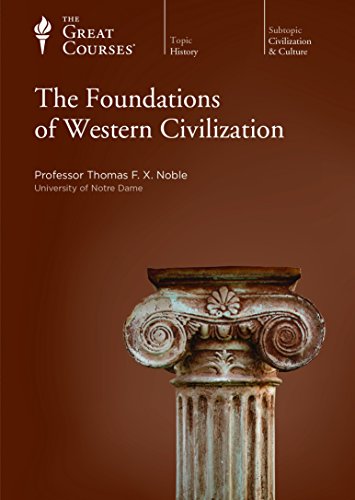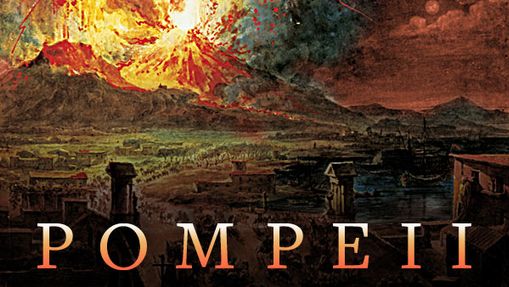Have you ever wanted to know a lot more about a specific topic or increase your knowledge of a broad area of study? The Great Courses allows you to do that by listening to lectures, presented by college professors and experts, in a very diverse range of fields. Now, before you stop reading from fear that anything called a lecture must be boring, you should understand that the presentations are given by some of the most recognized scholars in their field who have been chosen because of their ability to relate to their students. What’s even better is that these resources, which can cost hundreds of dollars, are available to library patrons for free!
 Through the library, you can borrow a variety of The Great Courses book and CD combinations. There are many titles related to history, but, for now, let’s just focus on topics related to ancient history. For those who want courses that are more like a detailed summary with a focus on a large global area and with a scope that extends many centuries, there are several possibilities. “The Foundations of Western Civilization,” taught by Dr. Thomas Noble, a respected professor at the University of Notre Dame, covers the history of European and Middle Eastern civilizations beginning with the Ancient Sumerians in about 3000 B.C.E., through the Greeks, Romans,
Through the library, you can borrow a variety of The Great Courses book and CD combinations. There are many titles related to history, but, for now, let’s just focus on topics related to ancient history. For those who want courses that are more like a detailed summary with a focus on a large global area and with a scope that extends many centuries, there are several possibilities. “The Foundations of Western Civilization,” taught by Dr. Thomas Noble, a respected professor at the University of Notre Dame, covers the history of European and Middle Eastern civilizations beginning with the Ancient Sumerians in about 3000 B.C.E., through the Greeks, Romans, Christianity, Islam, the Middle Ages and Renaissance and Reformation. Dr. Noble does this in 48 separate lectures, each about 30 minutes in length. For a similar study of China, Japan and Southeast Asia, “Foundations of Eastern Civilization,” presented by Dr. Craig Benjamin, is of equal length. “The African Experience: From ‘Lucy’ to Mandela” offers a similar approach to civilizations and nations on the African continent, but brings the discussion nearly to the modern day. Dr. Kenneth Vickery is a fascinating speaker who shares his own insights, having lived for a time in parts of Africa.
 If you prefer a more focused topic, there are also several options. An excellent choice would be “Pompeii: Daily Life in an Ancient Roman City.” Relying heavily upon the well-preserved evidence that was discovered at Pompeii after archaeologists excavated it from many feet of volcanic ash, Dr. Steven Tuck presents a stunning series of 24 lectures on DVD. The course covers what we have learned about the lives of the Ancient Romans who lived in the city when disaster struck. Utilizing the vast amount of artifacts, human remains and even wall paintings that have been discovered at the site, Tuck builds a fascinating picture of what Pompeii was like when it was frozen in time after being destroyed by the eruption of Mt. Vesuvius. This course definitely benefits from its DVD format which allows the viewer to see many of the artifacts being discussed.
If you prefer a more focused topic, there are also several options. An excellent choice would be “Pompeii: Daily Life in an Ancient Roman City.” Relying heavily upon the well-preserved evidence that was discovered at Pompeii after archaeologists excavated it from many feet of volcanic ash, Dr. Steven Tuck presents a stunning series of 24 lectures on DVD. The course covers what we have learned about the lives of the Ancient Romans who lived in the city when disaster struck. Utilizing the vast amount of artifacts, human remains and even wall paintings that have been discovered at the site, Tuck builds a fascinating picture of what Pompeii was like when it was frozen in time after being destroyed by the eruption of Mt. Vesuvius. This course definitely benefits from its DVD format which allows the viewer to see many of the artifacts being discussed.
Daniel Boone Regional Library holds other ancient history titles in its collection, including:
- “Great Pharaohs of Ancient Egypt”
- “Understanding Greek and Roman Technology: From Catapult to the Pantheon”
- “Ancient Civilizations of North America”
Many titles are also available to library patrons when they borrow a Hoopla Binge pass from the Hoopla website or app.
And, if history is not your thing, be sure to search the catalog for other The Great Courses lectures — you are sure to find something of interest!


